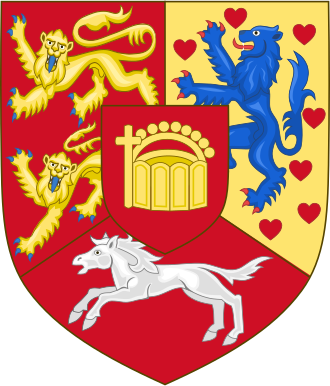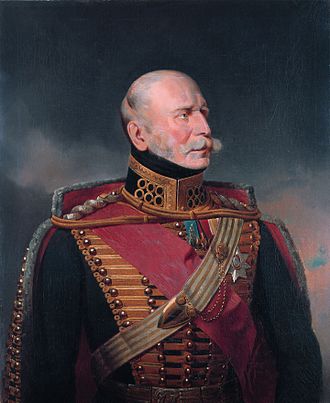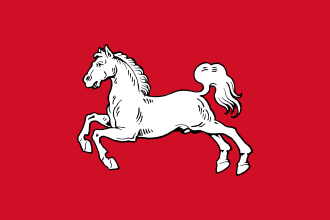Hanover Last Name Origin, History, and Meaning
Where did the surname Hanover come from? What does the surname Hanover mean? Discover the history and meaning of the last name Hanover and family migration on YourRoots Map.
Surname Hanover Origin: What does the last name Hanover mean?
The surname Hanover has its origins in Germany, with records dating back to the early 16th century according to YourRoots data. The name remained closely associated with Germany in the 16th century before seeing significant growth in countries like England during the 17th and 18th centuries. By the 20th century, the Hanover surname had spread globally, with prominent records in England, Germany, and other countries around the world.
YourRoots data confirms the presence of the Hanover surname in various countries, indicating a global spread over the centuries. The surname has a rich history, with origins in Germany and significant growth in England over time. Today, the Hanover surname can be found in many countries, including those in Europe and beyond, showcasing its widespread presence and historical significance.
Hanover Last Name History: Where did the last name Hanover come from?
Origin of Hanover Surname: Where does the last name Hanover originate from?
According to YourRoots data, the surname Hanover first appeared in records from Germany around the early 16th century. Please note that this reflects only YourRoots data for the exact Hanover spelling and does not include other record sources or surname variations.
History of the Last Name Hanover: What does the Hanover surname history look like in the early days?
The Hanover surname remained closely associated with Germany in the 16th century, then saw significant growth in countries like England during the 17th and 18th centuries. YourRoots data also shows Hanover family records in various countries, indicating global spread over the centuries.
Global Spread: Where can we find the Hanover surname today?
By the 20th century, the volume of records with the Hanover surname grew significantly in England. The Hanover surname remains prominent in England, Germany, and other countries around the world. It appears in many countries, including those in Europe and beyond.
Explore Hanover last name heritage and Hanover surname origin based on YourRoots Map data
 VIEW THE ORIGIN OF SURNAME HANOVER
VIEW THE ORIGIN OF SURNAME HANOVERFamous People With Hanover Surame?

House of Hanover
George William (May 28, 1624 – Dec 8, 1705) was a member of the House of Hanover and Prince of Calenberg and Lüneburg. He was the second son of Duke George and became Prince of Calenberg in 1648 and Prince of Lüneburg in 1665. George William relinquished Calenberg to his brother, Christian Louis, and ruled over Lüneburg until his death. He played a key role in the division and reunification of the Duchy of Brunswick-Lüneburg, ultimately leading to the ascension of his grandson George I as the first British monarch of the House of Hanover.

Ernest Augustus, King of Hanover
Ernest Augustus (Ernst August) was King of Hanover from June 20, 1837, until his passing on November 18, 1851. He was the fifth son of King George III of the United Kingdom and Hanover. Despite seeming unlikely to become a monarch at first, he succeeded in Hanover after his elder brother's passing. Ernest was known for his military training, disfiguring facial wound, and controversial reign which included voiding a liberal constitution and dismissing the Brothers Grimm. His rule ended the personal union between Britain and Hanover.

Kingdom of Hanover
Kingdom of Hanover, also known as Königreich Hannover, was a historical German kingdom established in 1814. It was ruled by the House of Hanover and was in a personal union with Great Britain until 1837. After being conquered by Prussia in 1866, it became part of the German Empire. The kingdom was briefly revived in 1946 as the State of Hanover before merging into Lower Saxony. Despite its turbulent history, Kingdom of Hanover remains a significant part of German and European history.

Sophia of Hanover
Sophia of Hanover (October 14, 1630 – June 8, 1714) was a prominent figure in European royalty as Electress of Hanover and heiress presumptive to the thrones of England, Scotland, and Ireland. Born Princess Sophia of the Palatinate, she married Prince-Elector Ernest Augustus and bore seven children, including George I of Great Britain. Sophia was known for her patronage of the arts, commissioning Herrenhausen Palace and gardens and fostering intellectual pursuits. Despite passing just before ascending the throne, her Protestant descendants have since defined the British monarchy.

Frederica of Hanover
Frederica of Hanover (Friederike Luise; April 18, 1917 – February 6, 1981) was Queen of Greece and later Queen Mother of Greece. She was the granddaughter of Kaiser Wilhelm II and daughter of Duke Ernest Augustus of Brunswick. Frederica played a significant role during World War II, supporting refugees and aiding the government. She was known for her influence as the dowager queen and for her involvement in the tensions between the palace and the government of George Papandreou.
All images displayed on this page are sourced from Wikipedia or Wikimedia Commons.We use these images under their respective Creative Commons or public domain licenses. Wherever applicable, author attributions and license information are provided. If you believe an image is used incorrectly or outside its license terms, please contact us so that we can review and correct the issue.




.png)